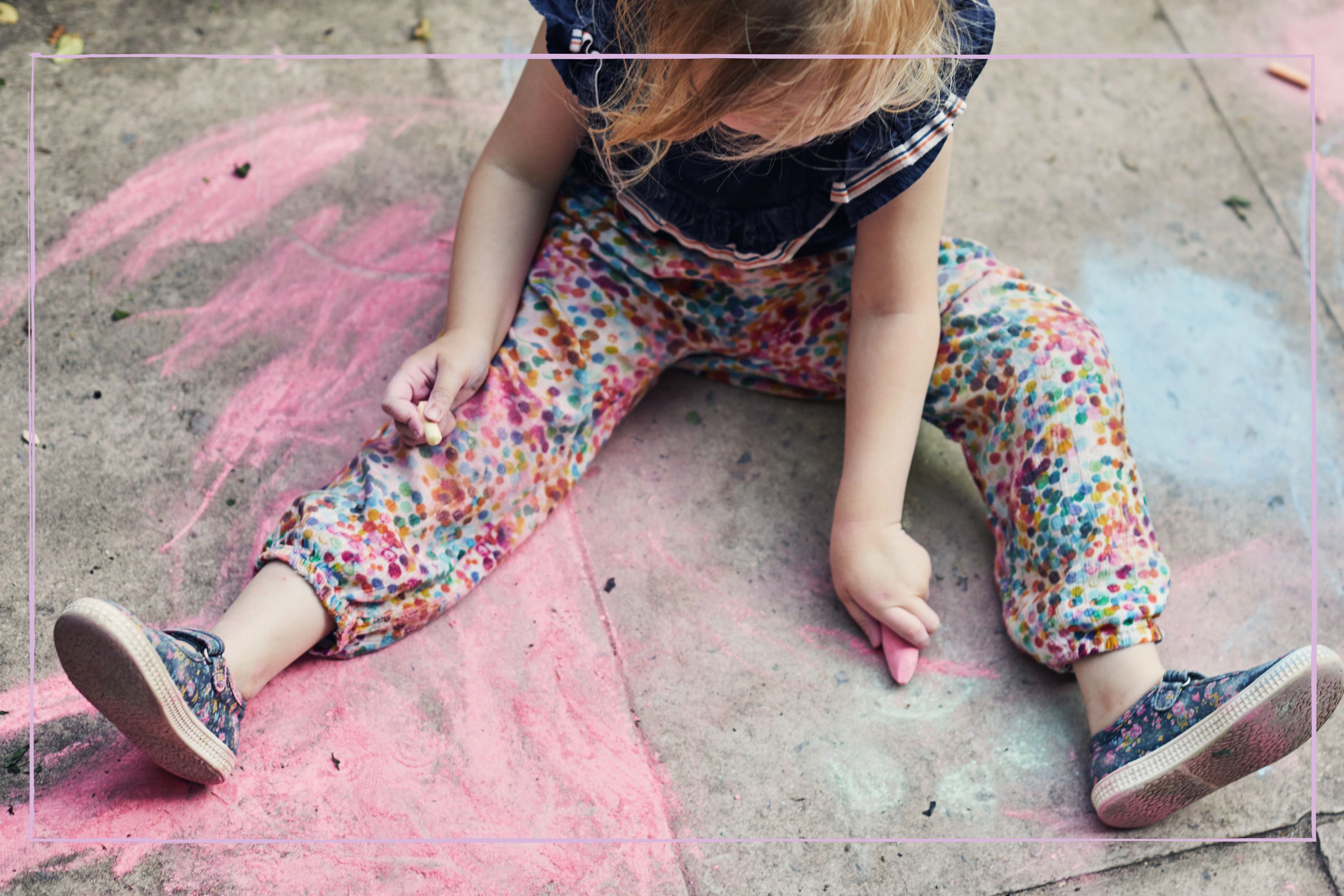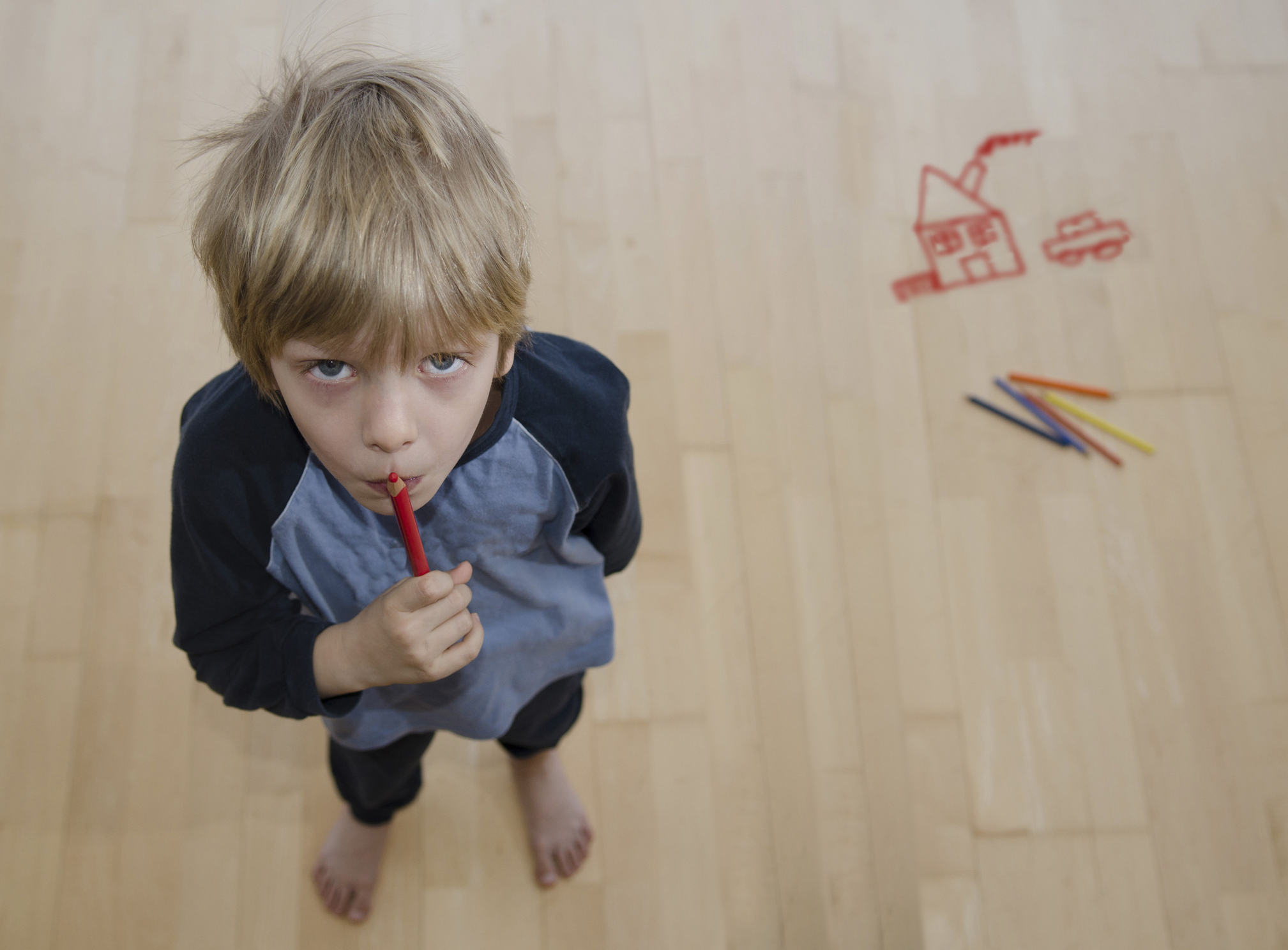
Parenting experts have reacted to a controversial video of a mother allowing her toddler to draw on the kitchen floor at home. And they give you the tools needed to strike a fair deal with your kids without having to be a 'yes' parent.
If you feel 'mum guilt' for going back to work or for not giving your child much attention, you're not alone. Meanwhile, many parents try permissive parenting, where parents want to be seen as their kids' friend rather than their mum or dad - and it can cause issues with their behaviour.
But if you don't know what your parenting style is, you might often find yourself parenting depending on the situation at the time. For example, going softer on your kids when you're in the middle of doing something - so that they give you a moment's peace - or discipline them more when you have family or friends around.
One mum, Kira Addison, shared a video on TikTok of her allowing her toddler to draw on her kitchen floor as she was busy cooking and included a caption to explain the method behind her apparent 'madness'. It reads, "Healing my inner child is letting my two-year-old colour on the kitchen floor while I’m cooking. She asked me first and I said yes. She tried to ask if she could colour on the cabinet and I said no and she listened. She knows this is only allowed right here. But she had the most fun and it can all be cleaned.”
And parents are divided over whether this is genius or just giving yourself unnecessary extra work.

One TikTok user said, "It’s not healing anything other than letting your kid boss you around. This is what’s wrong with kids parents are trying to be their friend."
Another said, "Don't let them just do whatever because you are afraid to say no."
Meanwhile, one parent admitted she'd done something similar, writing "Kid went through a phase of wanting to colour walls. we always said no and he'd do it anyway. finally gave him his own little corner to do it in and he lost interest. seems like a win win honestly."
And a second parent said, "My three-year-old granddaughter uses chunky chalks to draw on our floor, always asks first never uses crayons or pencil on them, and has the most fun being creative and then cleaning up afterwards."
Here are some things to consider before saying 'Yes' or 'No' to your kids...
The pros of letting your kids do what they want, according to the experts
- It helps foster a sense of creativity by allowing them to be "messy and creative" parenting expert Courtney Morgan said this is "super important for toddlers.
- Empowers them to ask for what they want - by saying 'yes', the child will have had to ask permission in the first place, which is important. Courtney says this "helps to create bonding experiences in some situations and decreases power struggles."
- It enables them to be authentically themselves.
The cons of letting your kids do what they want, according to the experts
- Saying 'Yes' to every request your child makes is not healthy for them or their development. Ronald Hoang, a registered clinical counsellor and psychotherapist warned that children might grow up "thinking they are the centre of the universe" and refuse to stick to rules and boundaries throughout their lives.
- It helps them develop a healthy understanding of what appropriate boundaries look like.
- It can confuse and stop a child from developing a sense of self and a sense of the outside world as it allows behaviour that might not be permissible in other situations.
- It causes difficulty problem-solving or managing emotions when being told no.
- It can create conflict when the expectations are different in different settings
- It can create an enmeshment between parent and child for example, "The child may assume it is always OK to do what they asked to do (like drawing on the floor!) and receive consequences in another setting (like pre-school),” Courtney added.
If all of the above positives and negatives of saying 'yes' to your child have just confused you even more, then there is one quick way of deciding whether you should say yes or no. Courtney warned, "Whenever a parent is saying yes to something to avoid conflict or upsetting a child, that is too many".
Parents are encouraged to try other ways of saying no without coming across as being too harsh. One way is to redirect the activity to something more appropriate. Ronald explained, "Say something along the lines of, ‘I can see you really want to draw. The floor is not for drawing, what else do you think you might want to draw on?’” or try this alternative, ‘I love your creativity! It’s important to me that the floors stay clean. Would you rather draw on this paper towel or a coloured piece of paper?’”
The above examples show the child empathy while also maintaining boundaries and giving the child an element of control by offering alternative options rather than refusing the request completely.
While parents don't want a day or tantrums, they certainly don't want to spend their free time cleaning up even more because they feel too afraid to say no or don't know the techniques needed to soften the blow.







